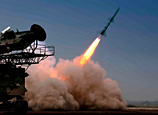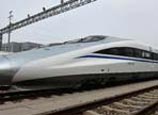
SHANGHAI, June 29 (Xinhua) -- With interbank borrowing rates tumbling, China's financial sector is getting relief from a credit crunch partially engineered by the central bank's moves to impose financial discipline amid the runaway expansion of shadow banking.
But as regulators remain committed to a tight policy stance, the credit crunch could be just the beginning of the pain caused by curtailing shadow banking, a bandage necessary for ensuring the health of the financial system of the world's second largest economy.
The cash shortage, which pushed interbank rates to double digits last week, ate up banks' profits and erased trillions of yuan in the stock market. The People's Bank of China later calmed market panic and drastically reduced banks' borrowing costs to normal levels. However, analysts say that does not indicate a policy reversal, as regulators are keen to squeeze financial bubbles.
Shadow banking, the value of which J.P. Morgan has estimated at 36 trillion yuan (5.86 trillion U.S. dollars), is believed to be focus of the deleveraging process. In an economy that relies heavily on credit expansion, such tightening measures will further weaken China's economic growth, which has already slumped to its lowest level since the Asian financial crisis.
While institutes like Goldman Sachs, IMF and Standard&Chartered have trimmed their forecasts for China's growth on concerns of monetary tightening, they have also maintained that the short-term pain of squeezing bubbles could push China's economic growth toward a more sustainable model.
"The liquidity crisis is proactive regulation, not passive adjustment," said Peng Wensheng, chief economist at China International Capital Corporation. "Such moves will cool off-balance-sheet activities and keep China's financial system stable in the long run."
Cutting down shadow banking will also resonate with Premier Li Keqiang's call for the financial sector to support the real economy. China's total social financing surged 50.2 percent to 9.11 trillion yuan during the first five months, but much of the money flowed to property developers and local government financing vehicles (LGFVs) via shadow banking, leaving small and medium enterprises (SMEs) starved for cash.
According to a well-respected researcher at the Development Research Center of the State Council, LGFVs in western China would offer as much as 18 percent interest to get a loan from wealth management products (WMPs) and trust companies, the main sources of China's shadow banking.
While high yields normally entail high risk, financial institutions in China have not been hesitant in giving money to LGFVs, even though a huge proportion of LGFV-funded projects have not generated any cash flow. In the event of a liquidity crisis, lenders believe the LGFVs would be bailed out by local governments and eventually the central government.
"Therefore, curbing shadow banking will unleash funds stashed in real estate and local government financing vehicles," Peng said.
However, knocking out shadow banking will be painful.
"The liquidity crisis will spill over into the broader financial sector and the real economy," Barclays China economist Chang Jian said in a note. "The ripple effects to the WMPs market, bill financing market and the trust sector, and then to borrowers heavily reliant on the shadow banking sector, such as the local governments, SMEs, and developers, will be felt in the coming months."
For instance, many LGFV-funded projects have had to take on new debts to cover old ones, and narrowing cash pipelines may result in waves of defaults.
As shadow banking activities unwind, China may see slower economic growth later in the year and higher non-performing loans (NPLs) in the banking sector, according to Wang Tao, chief China economist at UBS.
Still, both Chang and Wang said a financial meltdown is unlikely.
Steering money away from shadow banking and into the real economy, especially to industries that are crucial to China's economic upgrade, is regarded as an ideal way to defuse the risks accumulated in credit expansion.
"Companies critical to our country's economic upgrade are crying for financing, but a great deal of money refuses to go to the real economy," said Jiang Yongxiang, chairman of BMC, a Shanghai-based investment fund that specializes in tech companies. "Even if a small part of shadow banking funds can be transferred to the real economy, our country's economic upgrade would rise to new heights."
While curtailing shadow banking is not easy, taking money out of circulation in the financial sector to prop up the real economy is even harder, as the real economy does not make good money nowadays. With both foreign and domestic demand waning, corporate profitability is declining sharply.
"Even succeeding, we may repeat some failures made during the last two decades," J.P. Morgan China economist Zhu Haibin said, referring to the steel and cement industries, which were once "strategic industries" but are now beset by overcapacity. "It's better not to force banks to provide loans to certain industries."
















 Mom makes target weight to donate kidney to son
Mom makes target weight to donate kidney to son


![]()
